Fast-charging stations for electric bicycles have been introduced in Turku. The new energy research group at Turku University of Applied Sciences implemented the stations as part of a research project to develop energy-positive cities. The charging station supports sustainable mobility and the use of renewable energy in urban areas.
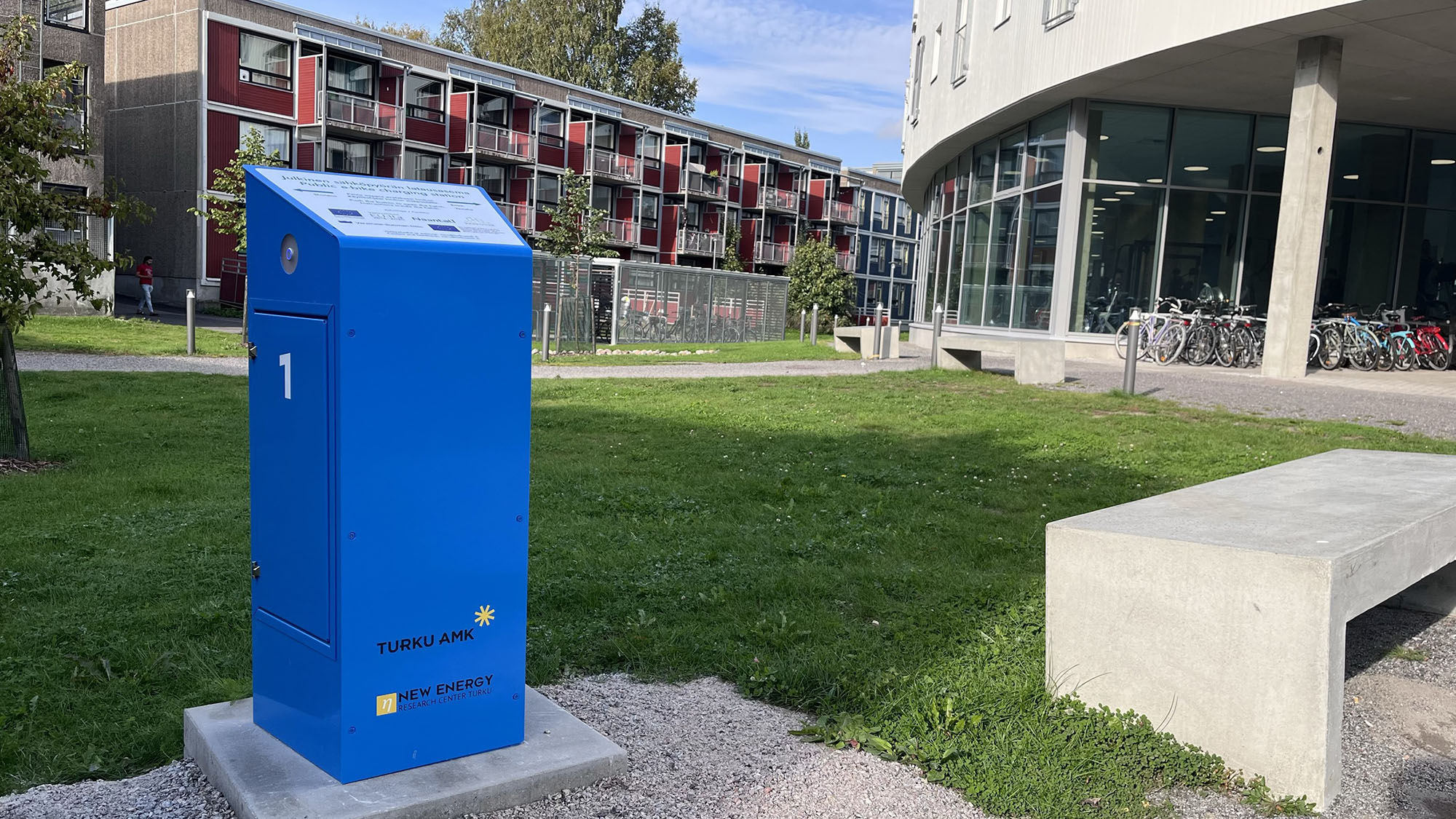
Electric bicycle charging station in the student village of Turku. Photo: Siiri Welling
Published:
Edited:
Text by Minna Salakari
Key facts
Turku University of Applied Sciences implemented free fast charging stations for electric bicycles in Turku Student Village. It is possible to get an additional 20 km of range on the bike with a half-hour charge. The stations use the latest technology, which guarantees environmental and user-friendliness. Electric bikes offer an environmentally friendly alternative to driving. In urban transport, they can reduce congestion, particulate emissions and noise.
The charging stations located in the Student Village in Turku enable fast and efficient charging of electric bikes: with the push of a button, the bike can travel 20 kilometres more with just half an hour of charging. The stations use the latest technology to ensure environmental and user-friendliness.
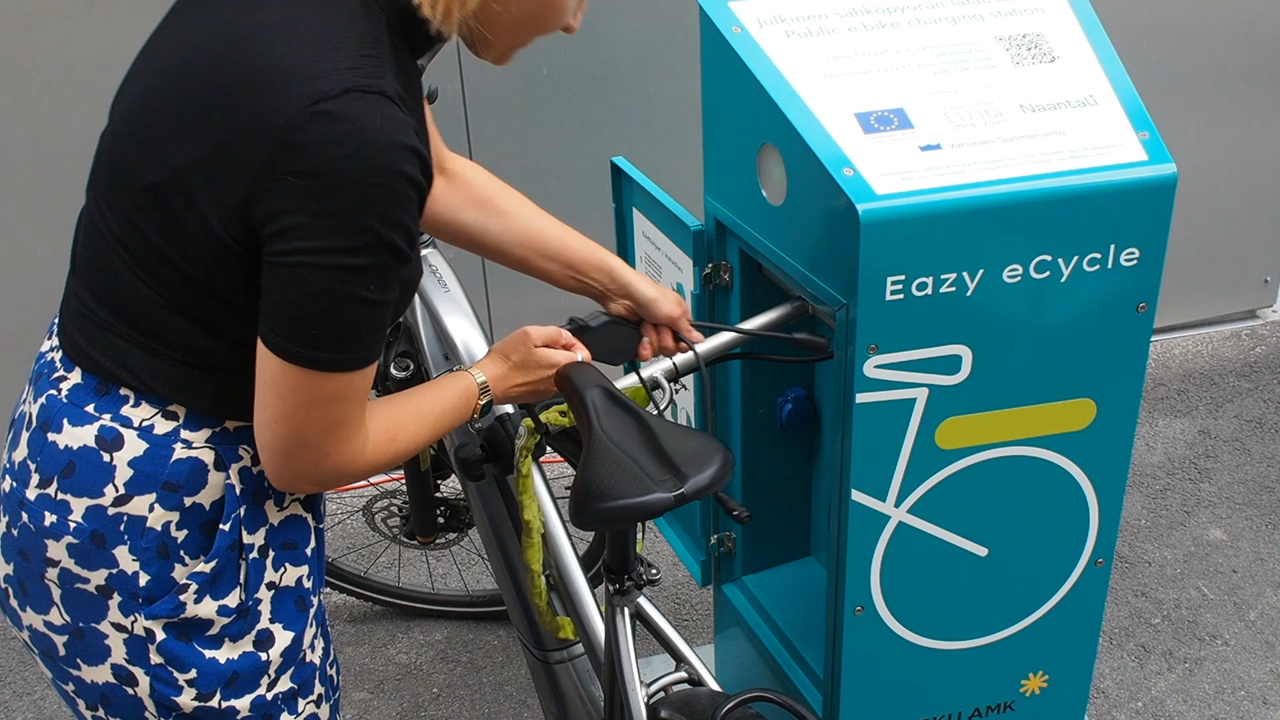
– Charging is free of charge for users, and the station allows two bikes to be charged at the same time. The charging station is suitable for different makes of bikes, says Eelis Niemi and Petri Jylhä, student assistants in the New Energy research group at Turku University of Applied Sciences, who were involved in the development.
Electric bikes as part of sustainable urban mobility and climate solutions
Electric bikes offer an environmentally friendly alternative to car travel, especially in areas where short distances can be covered by bike. In urban transport, they can reduce congestion, fine particulate emissions and noise, thus improving the quality of life in urban environments.
– If there were more and wider charging points, people in Turku would be able to cycle longer distances. I would see this as a great opportunity and an alternative to skateboarding,” says Jylhä.
Compared to conventional internal combustion engine vehicles, electric bikes produce significantly less carbon dioxide. Sustainability is therefore one of the pillars of e-biking: reducing carbon dioxide emissions from transport is an important objective not only for regional but also for global climate work.
The electric bike is one concrete solution to reduce CO2 emissions and charging stations contribute to this development. It is also an example of how project work can have a concrete impact on life and sustainable development,” says Jylhä.
Energy-positive cities – drivers of sustainable development
Energy-positive cities are regions that produce more energy than they consume. This is achieved by combining energy-efficient solutions, renewable energy sources such as solar and wind power, and smart energy management systems.
The cities of the future will be increasingly able to make use of locally produced energy. Smart grids optimise energy production and consumption by responding to demand in real time, Samuli Ranta, Lecturer and Research Group Leader says.
Fast-charging stations for electric bikes are just the beginning: the New Energy Research Group continues its pioneering work on sustainability.
– An energy management system is being developed between the buildings of the Student Village. It will allow the energy consumption of the different buildings in the area to be monitored, managed and optimised as a whole,” says Niemi, who is studying information technology.
The system can monitor the energy needs of buildings and adjust functions such as heating, ventilation and lighting to smooth out peaks in consumption and save energy.
Energy positivity is pursued through close cooperation between residents, businesses and city authorities. This promotes sustainable development, reduces greenhouse gas emissions and increases urban self-sufficiency.
The article was published on 2.10.2024 on the previous turkuamk.fi website.
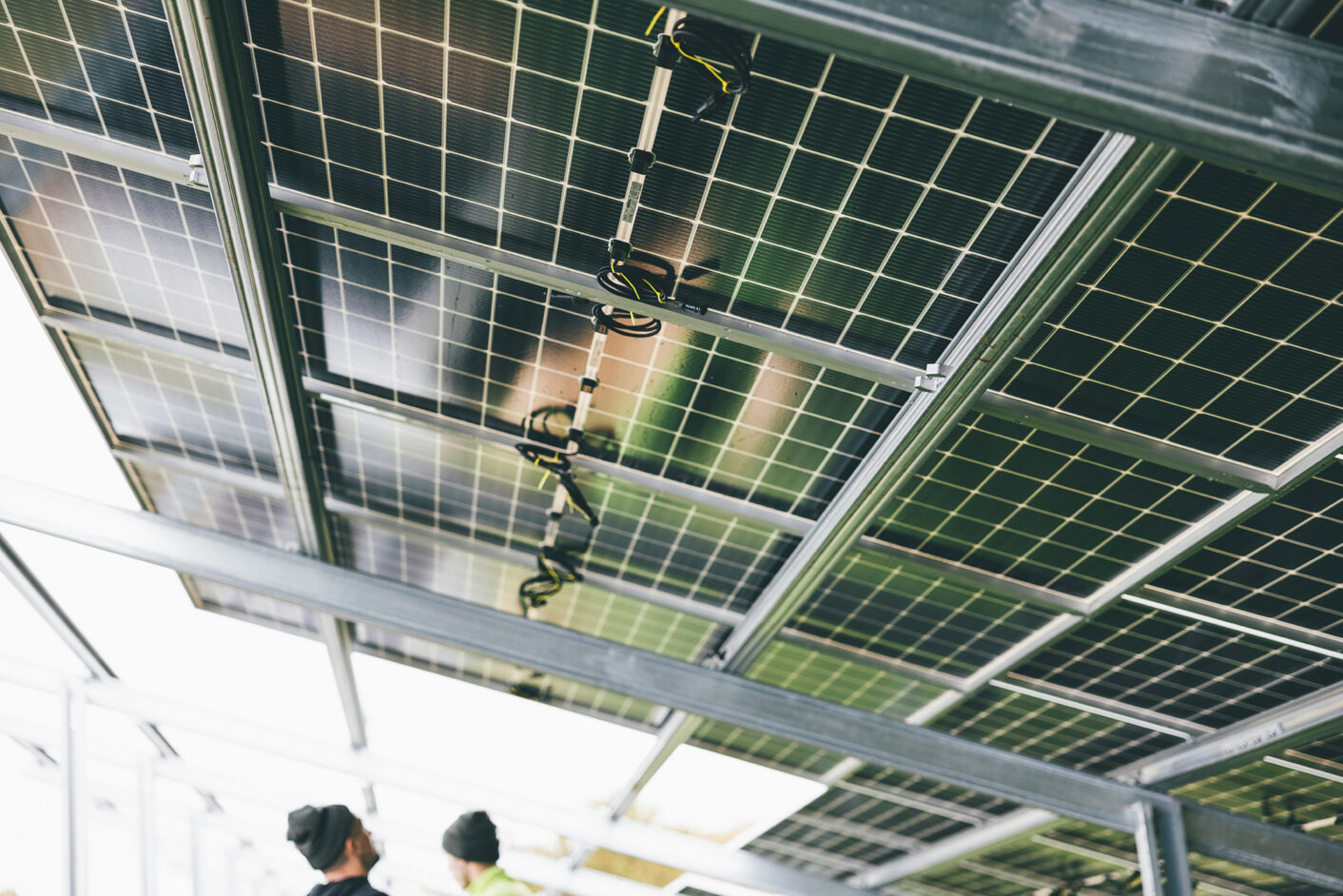
Smart cities
Our aim is to create resilient and safe cities, while improving quality of life and reducing the impact of climate change. At the heart of this are energy-positive neighbourhoods and districts, which are being developed in Turku and internationally.
Find out how the RESPONSE research project is creating energy-positive cities.
What does the sustainability transition require? Find out about research and education
Read next
-
CasePress Release
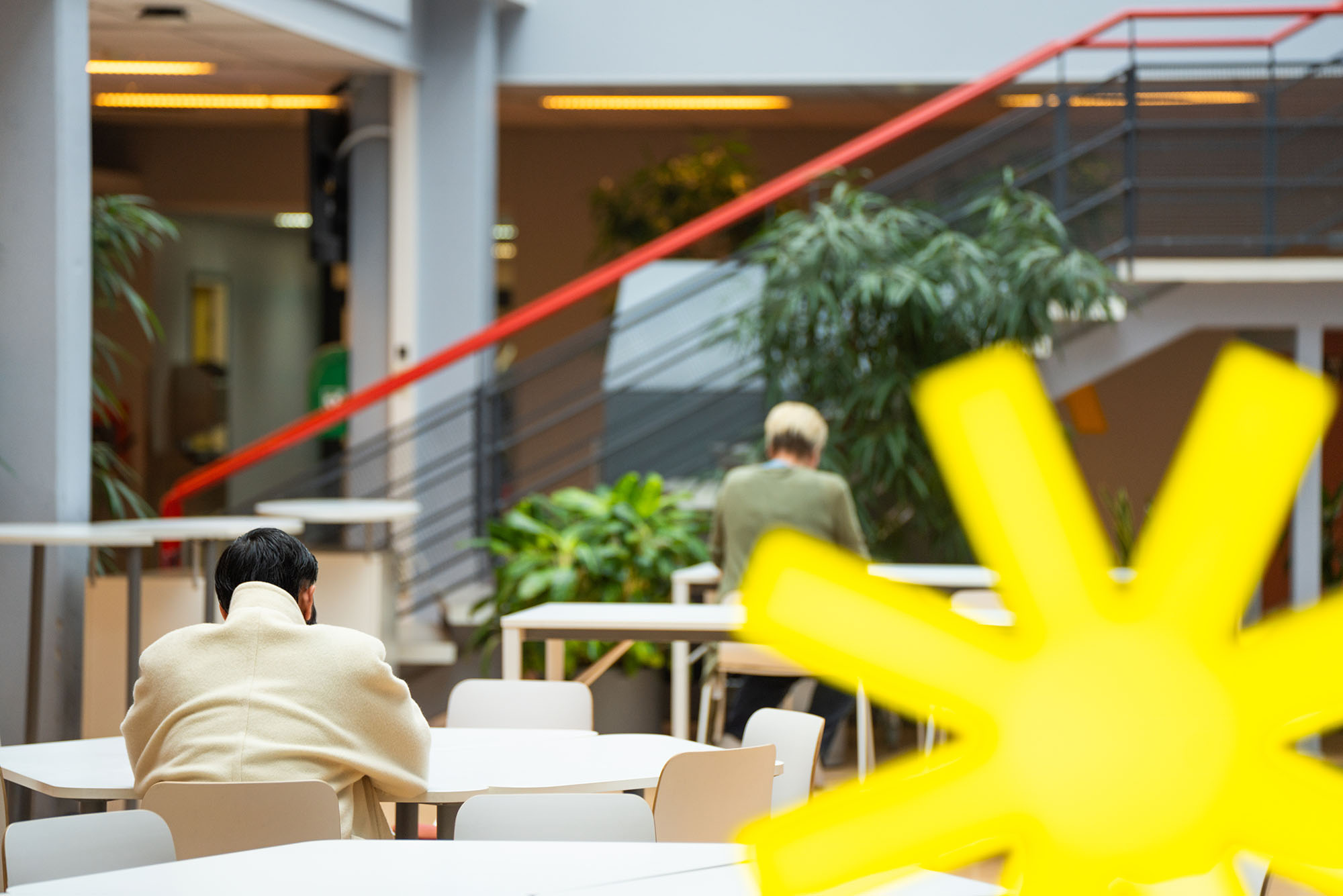
1000 students from Turku University of Applied Sciences develop sustainable development solutions for organisations in Turku
In a new joint project between Turku University of Applied Sciences and the City of Turku, students are solving sustainability problems in companies and other organisations. Published: Edited:…
-
Press Release

Turku AMK develops more equal transport in the Turku region
The international project, led by Turku University of Applied Sciences, promotes more equitable and sustainable urban transport in Finland, Hungary, Greece, Italy, the Czech Republic and France. Transport…
-
Press Release
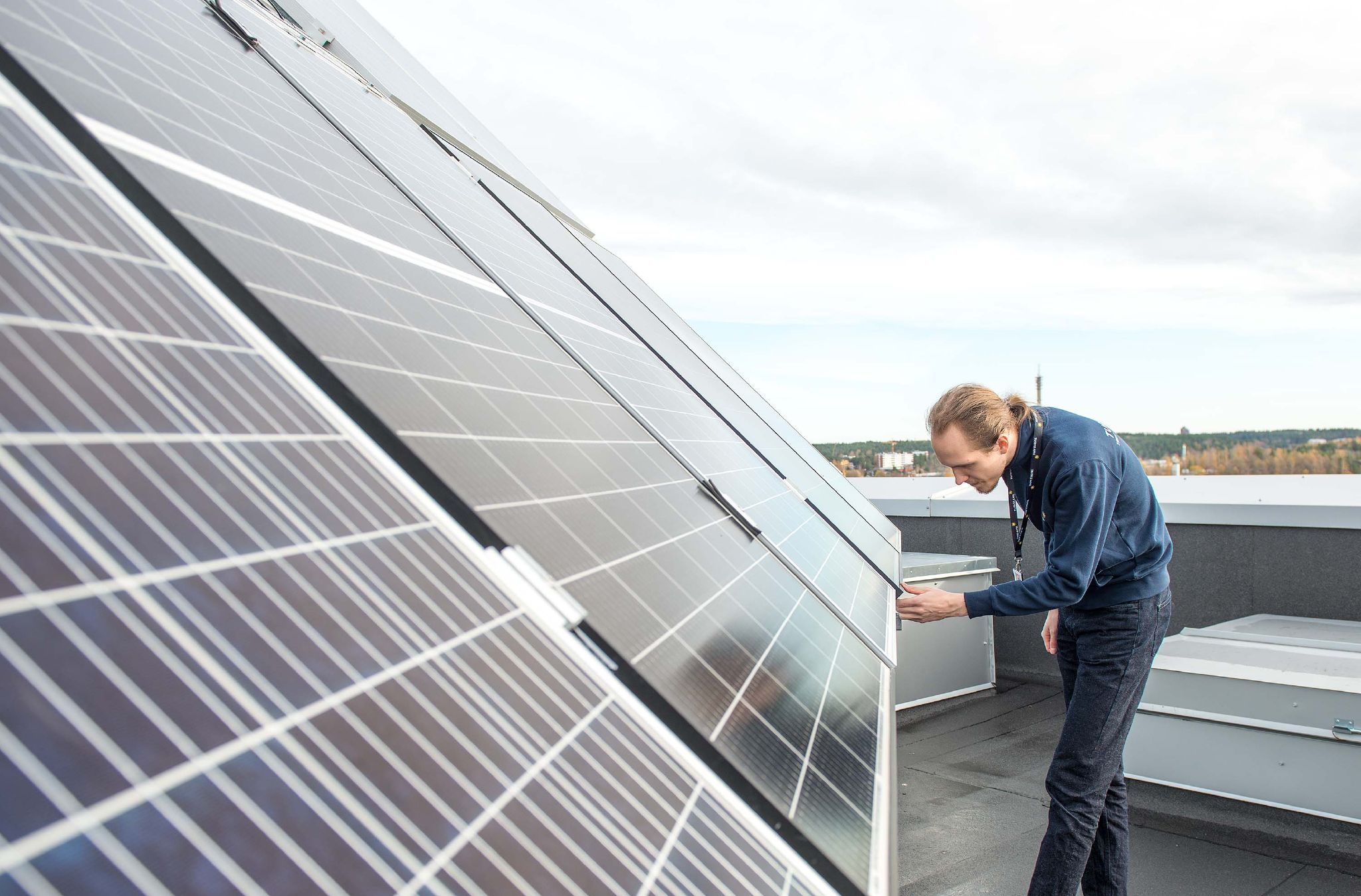
Energy transition requires new skills: at the Turku University of Applied Sciences International Summer School, solar power is studied in a power plant, a factory and a solar park
Organised by Turku University of Applied Sciences, Raseko (Raisio Region Consortium of Schools) and Solar Finland, the international solar summer school brings together students and experts from all…
